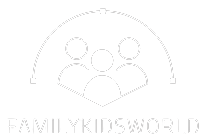In this article, you will learn about the seven psychological effects of being yelled at as a child and why yelling is not an effective way of disciplining or communicating with your child. If you are a parent who yells at your child when they do not listen or behave and wonder how your yelling affects your child’s mental health and development, you may want to read this article.
Aggression
Yelling at children frequently may make them more verbally and physically aggressive. They might also start to behave inappropriately, such as by lying, stealing, or bullying. This is because shouting can trigger the amygdala, a region of the brain that controls fear and rage. The amygdala can overpower the rational part of the brain and make the child act impulsively or defensively when it is activated.
Anxiety
Anxiety is a further immediate result of being yelled at. Children who experience severe verbal punishment may experience anxiety, trepidation, or fear. In addition, they might start having phobias or panic attacks. This is due to the fact that screaming can make a child feel uneasy and unsafe. Additionally, it can raise the body’s level of stress hormones like cortisol. These hormones can have an impact on the nervous system and result in symptoms like heart palpitations, sweating, and trembling.
Withdrawal
Yelling at children frequently may make them withdraw, quiet, or shy. They might also avoid others or social situations. This is because screaming may make the child feel guilty, embarrassed, or unworthy. It may also damage the child’s confidence and sense of self-worth. The child might think that they are bad or unlovable and that no one cares about them.
Low Self-Esteem
Being yelled at frequently and harshly may cause children to have low self-esteem. They may also have low self-worth and self-respect. This is because screaming can make children internalize the negative messages they get from their parents or other adults. They might think that they deserve to be treated poorly because they are worthless, foolish, or incompetent.
Depression
Verbal abuse by their parents or other adults may cause children to experience depression symptoms as teenagers or adults. They might feel depressed, hopeless, or suicidal. They might also lose interest in activities they once enjoyed or have trouble with their daily lives. This is because screaming can affect a child’s brain chemistry and development. It may change the concentration of neurotransmitters that control mood and emotion, like serotonin and dopamine.
Interpersonal Problems
Interpersonal issues are a third long-term effect of being yelled at. Children who hear yelling may find it difficult to build positive relationships with other people. They might have issues with communication, intimacy, trust, or resolving conflicts. By yelling at their partners or kids, they might continue the pattern of abuse. This is due to the fact that yelling can harm a child’s social and emotional development. Additionally, it may teach the child that screaming is a typical and acceptable method of resolving conflicts or expressing emotions.
Sleep Issues
Sleep problems are a final, long-term consequence of being yelled at. Children who experience frequent yelling may have trouble falling or staying asleep. Additionally, they might have nightmares or night terrors. This is due to the fact that screaming can affect a child’s circadian rhythm and level of sleep. Additionally, it may make the kid fearful or anxious before bed.
It is not cool to yell at a child, and it will not help in the long run. It only harms the child psychologically and ruins the parent-child bond. Parents should employ respectful, consistent, and efficient positive discipline techniques rather than yelling at their children.
Conclusion:
The psychological effects of being yelled at as a child can be both immediate and long-lasting. Aggression, anxiety, withdrawal, low self-esteem, depression, interpersonal issues, and sleep problems are a few of these effects. The child’s functioning and overall well-being may be hampered by these effects. The wrong way to handle your child’s misbehavior or emotions is to yell at them. Only they suffer, and your relationship with them suffers as a result. Use respectful, consistent, and successful positive discipline techniques rather than yelling at your child. You will be able to improve your relationship with your child and establish a more loving and peaceful environment in your home by doing this.

